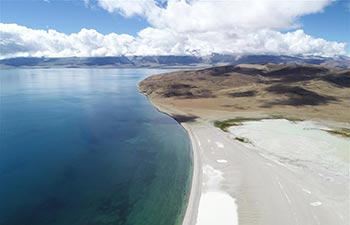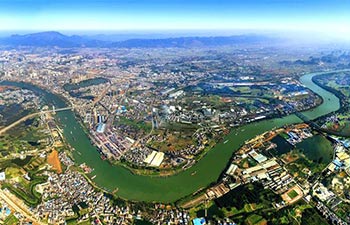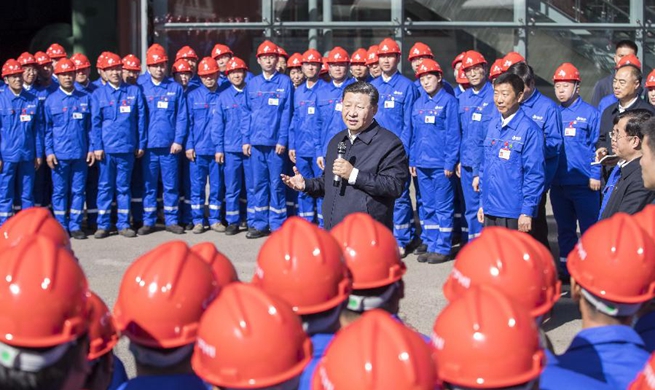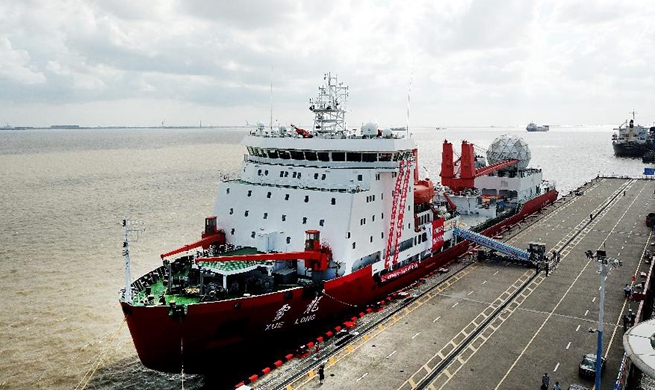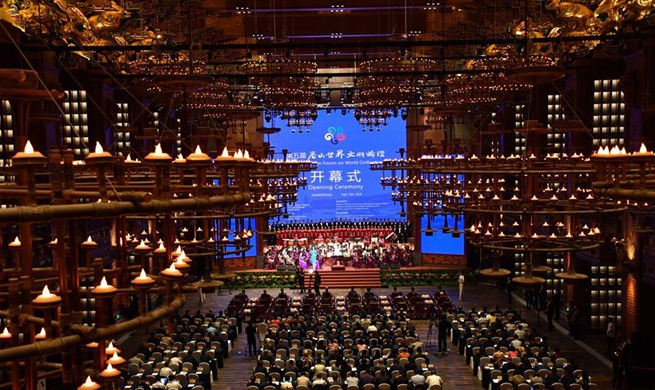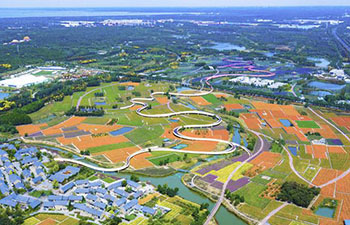KATHMANDU, Sept. 26 (Xinhua)-- Nepal's economy is expected to grow by 5.5 percent in the current fiscal year 2018-19 that began in mid-July, down from 5.9 percent in the last fiscal, the Asian Development Bank (ADB) said on Wednesday.
The ADB projection of economic growth is lower than the target of the Nepali government which stands at 8 percent for this fiscal year.
In a report titled 'Nepal Macroeconomic Update' unveiled by the Asian lender, it has pointed out the limited capacity of provincial and local governments formed after last year's elections and challenges to smooth implementation of federalism as the factors that could pose risks to growth.
"The growth forecast represents a continued trend reversal but is substantially higher than the average rate of 4.3 percent in the last 10 years (Fiscal 2008-09-Fiscal 2017-18)," Sharad Bhandari, ADB's Principal Economist for Nepal, said in a statement.
"Growth will be supported by expectations of greater political stability following the 2017 elections, normal monsoon, and efforts to accelerate implementation of mega infrastructure projects," he said.
In fiscal 2016-17, the Nepali economy grew a 23-year high of 6.9 percent.
According to the ADB, Nepal's agriculture sector is expected grow by 3.5 percent, up from 2.8 percent on the back of anticipated bumper harvest due to good monsoon, but growth of industry and service sectors are expected to go down slightly compared to last fiscal year.
The ADB report also pointed out that the Himalayan country increasingly faces the risk of external sector instability due to rising trade and current account deficit.
The current account deficit of 2.4 billion U.S. dollar in the last fiscal 2017-18 is significantly higher than the deficit of 95.7 million U.S. dollar a year earlier, the Asian lender said.
"Though remittance inflow in Nepal has been growing healthily, a substantial increase in remittance income to control the ballooning current account deficit is unlikely in near future. On the other hand, rising trade deficit and falling net income are likely to further widen the current account deficit in coming years," the report said.


